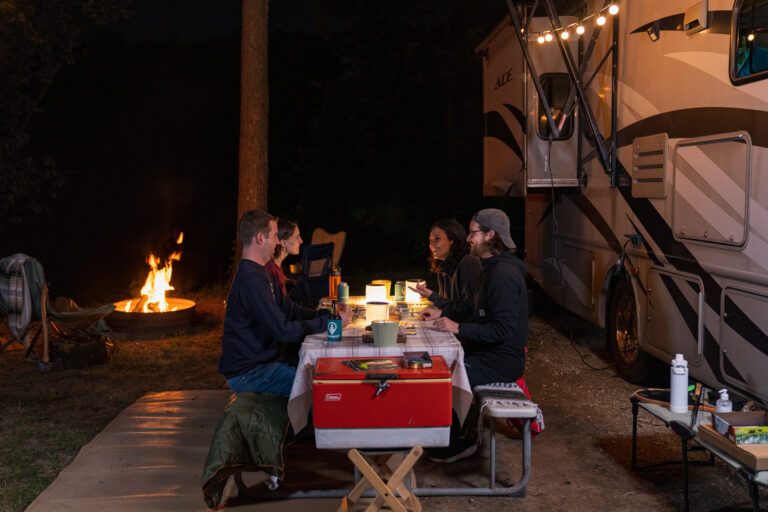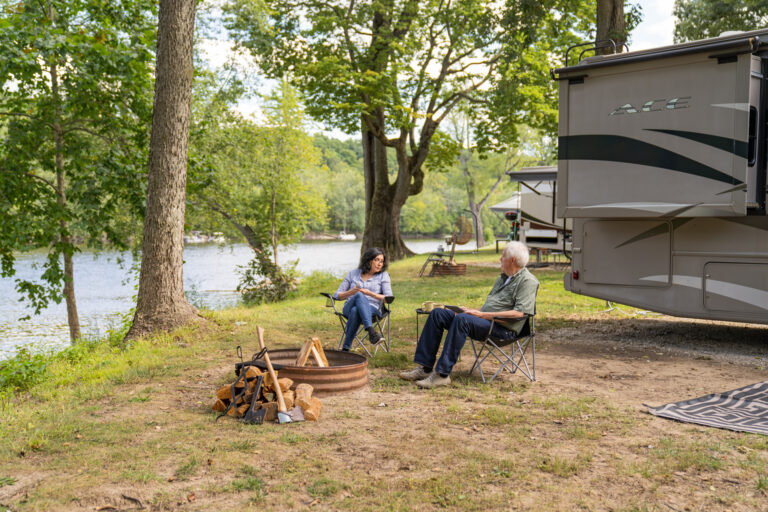
Camping should be a relaxing time to commune with nature and your loved ones. This restorative journey easily turns into a horror show when everybody is cold, hungry, and tired of being stuck in the middle of nowhere.
Just because you’ll be sleeping under canvas for a few days, you don’t have to be miserable. Keep the tips below in mind, and you are guaranteed to always have happy campers in your midst.
- Do Your Research
Always research where you are heading to. You don’t necessarily have to buy a book on the area. A phone call to the site should be sufficient to answer any questions you may have about what to pack and what to expect.
- Don’t Buy Big
Several camping gadgets are available to make the camping experience easier, but do not get too excited and buy everything up.
Ask a veteran what is and isn’t necessary, and adjust as you continue your camping journey. You will need to go camping a few times before you know just what is right for your needs.

- Double Check Your Tent Size
Never trust the manufacturer. If the tent says “one man,” expect to be sleeping in a giant condom-like canvas tent. If it says “three-man tent,” I hope you are a couple, looking to spoon in the woods.
Always pick three capacity ratings higher than you need, if you would like to be comfortable. If you are backpacking, a larger tent means extra weight.
- Practice Beforehand
No, you are not a nerd, just because you want to see how to set up your tent in your backyard before you actually go camping. Finding a broken zipper while you’re at the campsite, or a few missing tent pegs, will be the beginning of a long, and probably horrible, camping experience.
If you’ve never used it before, try it before you go out camping.
- Arrive Early
If you’ve never pitched a tent in darkness good for you, you don’t want to! You will select a bad spot, due to the bad lighting, and make the neighboring campers mad with all your activity during the night.
Get to the campsite early and familiarize yourself with your surroundings.
- Pack Plenty for Bed
You will hate going to bed if you pack too light when it comes to your bed. If you like pillows, carry them. An eye mask and ear plugs may also be necessary. A camp bed wins out if you want a little comfort. If your campsite will be your home for a while, make it comfortable.
- Pack a Camp Stove
Imagine lighting a bonfire every time you want a cup of coffee. Flame-charred sausages are fine for the first day or so, but will soon get old. Pack a gas cooking stove to make quick smoke-free meals
On the other end of this is making complicated meals. When you have a log for a work surface, it’s probably a good idea to keep things simple. One-pot meals lessen the time spent washing dishes.
- Bring Several Lights
Unless you plan to sleep as soon as it gets dark, you will need several light sources. A headlamp is valuable when camping, and extra batteries are a necessity.
- Don’t Invite the Bears
Nocturnal visitors are standard in every campsite. (They may not be mentioned in your brochure though.) If they don’t get your garbage, they may get your other food, so lock it up. Do not leave garbage at the campsite; take it with you and dispose of it correctly.
Evenings can get long with no television to distract you. Bad weather also means you will be stuck in the tent or campsite. Basic things, such as books or a board game that can occupy you while you are confined to your canvas home, will feel heaven-sent.
Remember, no footwear is allowed into the tent ever! Sandy or muddy boots will make your sleeping area pretty unpleasant, and woe to you, if sand makes it in your sleeping bag! Extra thick socks are great to wear for lounging in the tent.
Remember to always observe campground rules.
Got any good tips we missed? Comment below and tell us!






